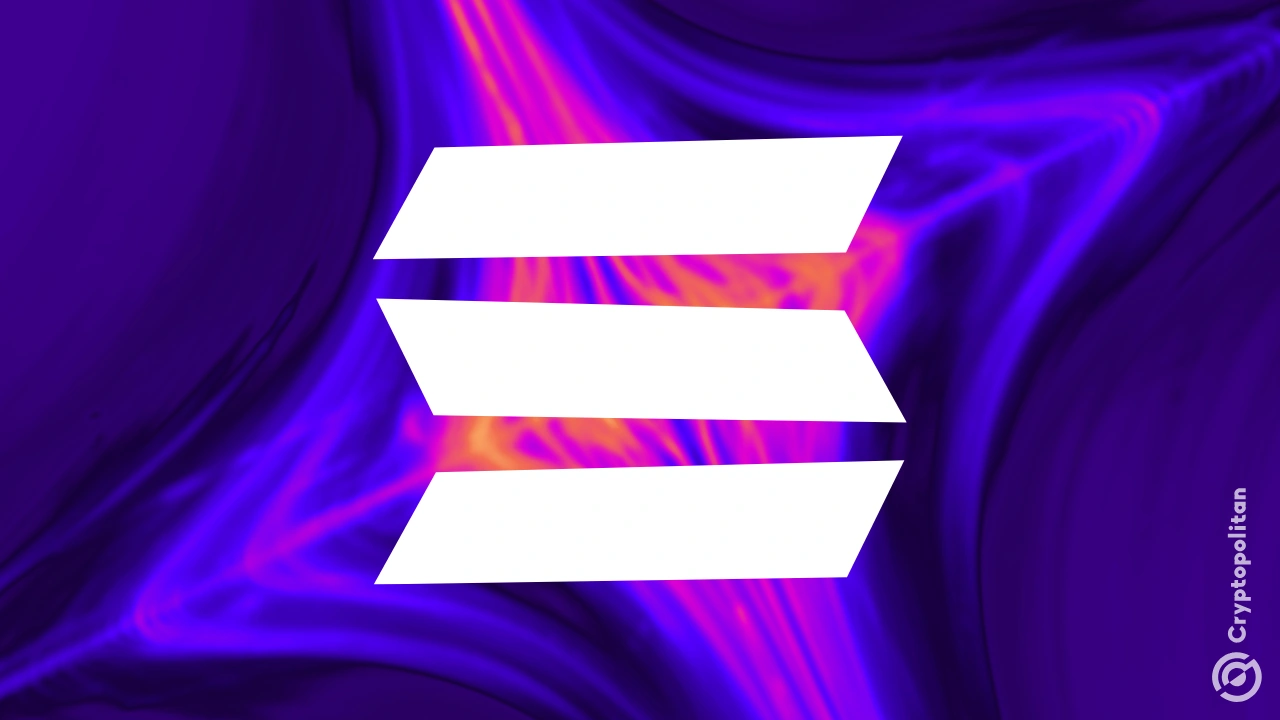2025 is here with a fresh start following a turbulent year that resulted in Solana losing millions of dollars. Solana developers have developed a quantum-resistant vault on the Solana blockchain to safeguard user funds from potential threats posed by quantum computers.
Cryptography researcher Dean Little noted that the Solana Winternitz Vault solution uses an advanced hash-based signature method to generate new keys with each transaction.
Quantum resistance has been achieved internally.https://t.co/O2wgya5ZDZ
— Dean 利迪恩 (🍍,🧋) | sbpf/acc (@deanmlittle) January 3, 2025
This strategy is intended to make it more difficult for quantum computers to coordinate assaults on any particular set of public keys, which are revealed with each transaction signature.
Dean Little explained that the public key Merkle Root is protected by 128-bit collision resistance and 256-bit preimage resistance. In addition to at least (112)-bit quantum security for collision resistance and (224)-bit for preimage resistance for lattice hashes.
He added that although the original Winternitz scheme employs untruncated Sha256 hashes, Keccak is the clear superior choice in a truncated scenario. This is due to its substantially greater resistance to length-extension attacks.
Notably, Solana’s quantum-resistant feature is an optional add-on rather than a network-wide security enhancement. This means that Solana users must choose to put their monies in the Winternitz Vault rather than a conventional Solana wallet to protect their assets from any quantum threats.
Solana Winternitz Vault mechanism of operation
To begin, create a new Winternitz keypair and open a new vault. Then calculate the Keccak256 Merkle Root of the public key. This will be accomplished by using the Merkle Root as the seed for a program-derived address.
However, due to Solana’s instruction data limits, lattice hashes are truncated to 224 bits. On the other hand, the Merkle Root of the public key used in PDA generation uses the full 256 bits.
The second step is to split the vault. This allows you to split funds from a vault between two accounts: a split account and a refund account. The user generates a Winternitz signature over a message containing the number of imports to send and the public keys for the split and refund accounts.
Additionally, the signature is then used to ensure vault ownership and avoid malleability in the event of a transaction replay attack. The Winternitz public key is extracted from the signature, hashed, and quickly validated against the PDA seeds.
The lamports amount is allocated to the split account. The remaining balance, if any, is returned to the refund account, and the vault is closed.
Finally, the vault is closed, and all remaining lamports are transferred to a specified account. The user must produce a Winternitz signature over a message that contains the refund account’s public key. The signature verifies vault ownership and prevents transaction replay attacks. Once PDA and signature are verified, the user can close the vault and refund the balance to the account.
Meanwhile, Ethereum has a plan to implement quantum-resistant solutions. However, Vitalik Buterin, one of the company’s founders, is certain that quantum technology will not present a significant threat for at least a decade.
He specifically said, “Even if ‘real’ quantum computers come soon, the day when regular people have quantum computers on their laptops or phones may well be decades after the day when powerful institutions get one that can crack elliptic curve cryptography.”
Solana’s phantom wallet to launch a native token?
In other news, multiple crypto X influencers had been announcing that Solana’s premier non-custodial wallet intended to introduce a token with an airdrop for users. However, Phantom Wallet stated in its most recent update on X that it has no intention of releasing a token.
We're thrilled by the enthusiasm for following users on Phantom!
It's a huge step for us toward making crypto more personal and user-friendly. By simplifying how you share and discover with friends, we aim to dramatically improve how users find new tokens and apps.
We've seen…
— Phantom (@phantom) January 3, 2025
Phantom Wallet expressed its satisfaction with the users’ enthusiasm for the token’s potential. Nevertheless, the protocol stated that it is prioritizing the simplification of the process by which users exchange and discover new assets on its platform rather than concentrating on its token. “We do not have any plans to launch a token,” it said in direct response to the PHNT asset rumors.
Additionally, the wallet said it is working on social discovery to get more people to know about and love the crypto business. In the meantime, the Solana Phantom Wallet did not specify any specific initiative for its social incentive for the community.
From Zero to Web3 Pro: Your 90-Day Career Launch Plan





